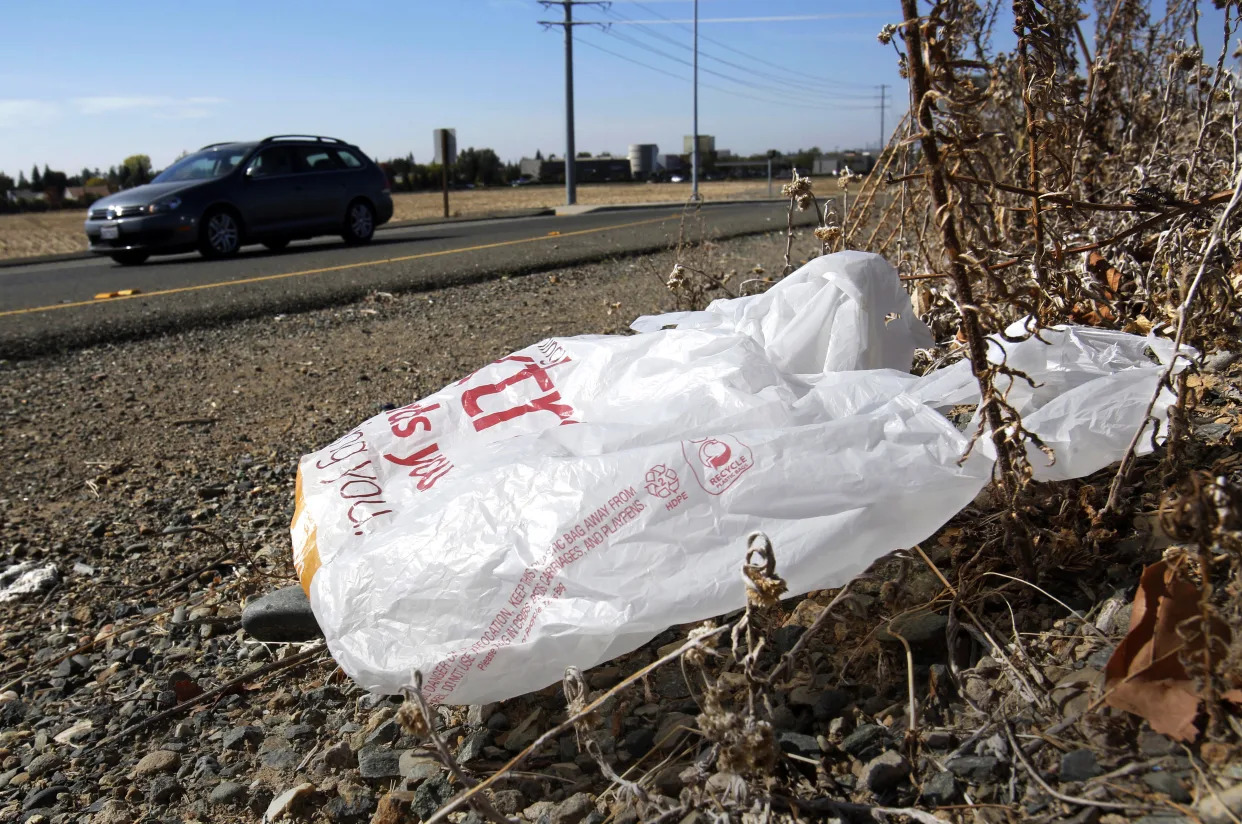Associated Press
Sun, September 22, 2024

FILE - A plastic bag sits along a roadside in Sacramento, Calif., Oct. 25, 2013. (AP Photo/Rich Pedroncelli, File)
SACRAMENTO, Calif. (AP) — “Paper or plastic” will no longer be a choice at grocery store checkout lines in California under a new law signed Sunday by Gov. Gavin Newsom that bans all plastic shopping bags.
California had already banned thin plastic shopping bags at supermarkets and other stores, but shoppers could purchase bags made with a thicker plastic that purportedly made them reusable and recyclable.
The new measure, approved by state legislators last month, bans all plastic shopping bags starting in 2026. Consumers who don't bring their own bags will now simply be asked if they want a paper bag.
State Sen. Catherine Blakespear, one of the bill's supporters, said people were not reusing or recycling any plastic bags. She pointed to a state study that found that the amount of plastic shopping bags trashed per person grew from 8 pounds (3.6 kilograms) per year in 2004 to 11 pounds (5 kilograms) per year in 2021.
Blakespear, a Democrat from Encinitas, said the previous bag ban passed a decade ago didn't reduce the overall use of plastic.
“We are literally choking our planet with plastic waste,” she said in February.
The environmental nonprofit Oceana applauded Newsom for signing the bill and "safeguarding California’s coastline, marine life, and communities from single-use plastic grocery bags.”
Christy Leavitt, Oceana’s plastics campaign director, said Sunday that the new ban on single-use plastic bags at grocery store checkouts “solidifies California as a leader in tackling the global plastic pollution crisis.”
Twelve states, including California, already have some type of statewide plastic bag ban in place, according to the environmental advocacy group Environment America Research & Policy Center. Hundreds of cities across 28 states also have their own plastic bag bans in place.
The California Legislature passed its statewide ban on plastic bags in 2014. The law was later affirmed by voters in a 2016 referendum.
The California Public Interest Research Group said Sunday that the new law finally meets the intent of the original bag ban.
“Plastic bags create pollution in our environment and break into microplastics that contaminate our drinking water and threaten our health,” said the group’s director Jenn Engstrom. “Californians voted to ban plastic grocery bags in our state almost a decade ago, but the law clearly needed a redo. With the Governor’s signature, California has finally banned plastic bags in grocery checkout lanes once and for all.”
As San Francisco’s mayor in 2007, Newsom signed the nation’s first plastic bag ban.


































